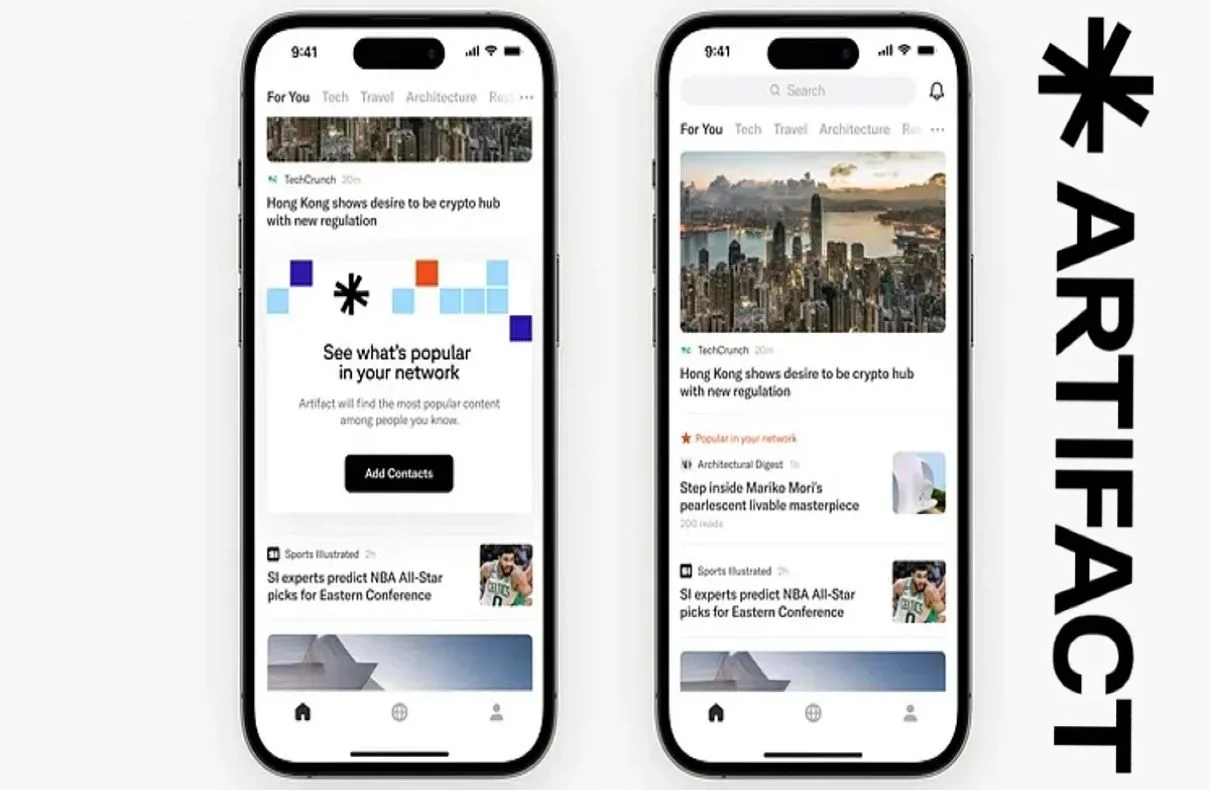Artifact, the innovative news app developed by Instagram co-founders Kevin Systrom and Mike Krieger, is closing its doors less than a year after its launch. Despite introducing AI-driven features and a Reddit-like posting ability, the app has faced challenges in carving out a distinct place in the highly competitive news aggregation and social networking space.
Key Highlights:
- Artifact, an AI-powered news app developed by Instagram co-founders, is shutting down.
- The decision to cease operations is due to the insufficient market opportunity for continued investment.
- Artifact evolved from a news aggregator to a social network, allowing users to become content creators.
- Despite its unique features, the app struggled to define its niche against competitors like Twitter and built-in news apps.
- The shutdown highlights the rapidly changing landscape of news consumption and AI’s role in content curation and delivery.

Understanding Artifact’s Journey
Launched as a news aggregator, Artifact aimed to revolutionize how we consume news. Its initial format was similar to other news apps, focusing on delivering a streamlined news reading experience. However, the app’s evolution into a social network marked a significant shift. This transition allowed users to not just consume news but also to create and share content, turning every user into a potential news curator and creator.
Transition from Aggregator to Social Platform
Initially envisioned as a SmartNews-like app for news reading, Artifact quickly evolved into a more complex platform, combining news curation and discovery. This transition allowed users to step into a creator’s role, sharing and discussing web content. The app leveraged AI tools for summarizing news, rewriting clickbait headlines, and surfacing top content.
However, this shift led to confusion about the app’s core purpose, contrasting with simpler news apps like Apple News. Artifact’s identity crisis, oscillating between a Twitter alternative, a Pinterest-like discovery tool, and an AI-driven news engine, made it challenging for users to integrate it into their daily routines.
Market Realities and Competitive Challenges
The decision to shut down Artifact stems from recognizing the harsh realities of the market. As Systrom noted, facing these truths is often difficult for startups, but necessary. The growing competition in spaces like Twitter and the overall decline in news aggregator usage, as seen with platforms like SmartNews, have contributed to Artifact’s struggle to maintain relevance and user engagement.
The evolving landscape of AI in news consumption has also played a role. With AI reshaping how news is found and consumed, and publishers grappling with their content being used in AI datasets, the news aggregation sector faces unique challenges and opportunities.
A Future Beyond Artifact
Despite Artifact’s closure, Systrom remains optimistic about the potential for AI in news and information, viewing it as a crucial area for startup investment. The experience with Artifact, though brief, sheds light on the dynamic nature of the tech industry and the ongoing need for innovation in how we consume news and information.
Artifact’s journey from a promising AI-powered news reader to its untimely shutdown is a tale of innovation, market realities, and the ever-shifting landscape of digital media consumption. While the app itself will no longer be part of this landscape, the lessons learned and the potential for future ventures in this space continue to inspire and drive the tech community forward.


















